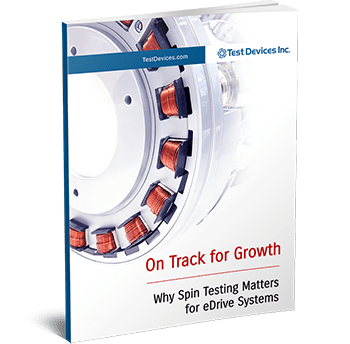eDrive Trends and Growth Potential for 2019
In recent years, electric vehicles have made a big impact on the mainstream automotive market. Consumers in more and more parts of the country are switching to zero-emissions vehicles as the risks and results of unmitigated climate change become more pronounced. Therefore, many automotive manufacturers are beginning to design, build, and sell electric vehicles, contributing to rapid growth in the EV market.
Electric vehicles play a key role in shaping the economy of the transportation sector. As the demand for hybrid and electric vehicles continues to rise, consumers will eagerly fund through their purchases innovative new technologies that make these vehicles even cleaner and more cost effective to produce.
The future scenario becomes even more persuasive when one considers the international community’s role in supporting these efforts. Leaders in the EU, China, and Japan are taking steps to incentivize the production and sale of electric vehicles, and they’re also introducing increasingly stringent regulations against gasoline engines. All these trends stem from the rising anxiety in response to climate change, of which fossil fuel–burning vehicles are a major contributing factor.
Electric Vehicle Trends in 2019
Electric vehicle technology has improved by leaps and bounds in recent years. Advances in this field have allowed these vehicles to match or even exceed the strength and versatility of traditional gasoline-burning vehicles. Electric motors can now support medium- and heavy-duty vehicles like trucks and buses, and they offer a host of other benefits previously reserved to gasoline-burning vehicles.
With year-to-year production increasing rapidly, manufacturers and consumers are starting to see the improvement in affordability of EV components and finished products. In fact, producing electric vehicles has become so affordable that many transit agencies are working toward a full conversion of their bus fleets to electric buses.
Public perception surrounding electric vehicles has shifted, too. Companies like Tesla have turned this once-niche market into a luxury power brand, and other automakers are starting to catch up. Additionally, many states and municipalities are incentivizing businesses to install car charging stations (or installing these stations themselves), increasing electric vehicles’ range and improving their utility as a tool for commuting.
Future Forecasts by Industry Analysts
Because they rely on the growing ubiquity of recharge stations, electric vehicles would be nowhere without the utilities that provide them with electricity. Energy Innovation modeling predicts that electric vehicles will account for 60–75% of new light-duty vehicle sales by 2050, and this will represent 13–15% of national electricity demand at that time.
A recent study by BCG details four factors that are expected to shape the transition to electric vehicles in the next decade:
- Technology
- Regulatory mandates
- Consumer adaptation
- Autonomous vehicles/ridesharing
The study’s authors predict that internal combustion engines will continue to dominate for the next few years, but the years between 2020 and 2025 will see an exponential increase in the market share of electric vehicles as OEMs adapt to increasingly stringent efficiency and emissions standards. While BCG predicts the majority of consumers to switch to hybrid vehicles, they also expect battery electric vehicles (BEVs) to gain market share over 2025–2030 as the total cost of ownership of these vehicles continues to fall.
Accenture has highlighted Europe, China, and the US as focal points for the coming mass-market adaptation of electric vehicles. Their electric vehicle market attractiveness index factors in political, economic, and technological information and advancements, highlighting these regions as having the strongest overlap between wealth, innovative potential, and regulations pushing consumers to adopt electric vehicles.
Test Devices’ eDrive Capabilities
Test Devices is proud to contribute to the growth of electric vehicle manufacturing by offering a host of consulting, measurement, and equipment-based testing services to automotive manufacturers. We’ve led the field in providing realistic rotational testing systems and services for over four decades
Some of our offerings include:
- Test equipment
- Rotor speed balancing
- Vertical spin test machines (to 160,000 RPM)
- Coordinate measurement machine and dimensional inspection
- Technical consulting
- Test design consulting
- Rotor dynamics analysis
- Design for balancing and balance budgeting
- Workshops and training
- Design and manufacturing or custom interface tooling for spin testing and balancing
- Spin test services
- Overspeed testing
- Burst testing
- Heated testing
- Cyclic testing
- Measurement systems
- Rotor speed, vibration, and temperature
- Rotor growth measurement
- High-speed video
- Crack detection
With an unparalleled reputation for safety and innovation, Test Devices is the ideal choice for any individual or business looking to evaluate the reliability of their equipment and vehicles. If you would like to learn more about Test Devices’ eDrive capabilities, contact us for further information today.





 >”/>
>”/>